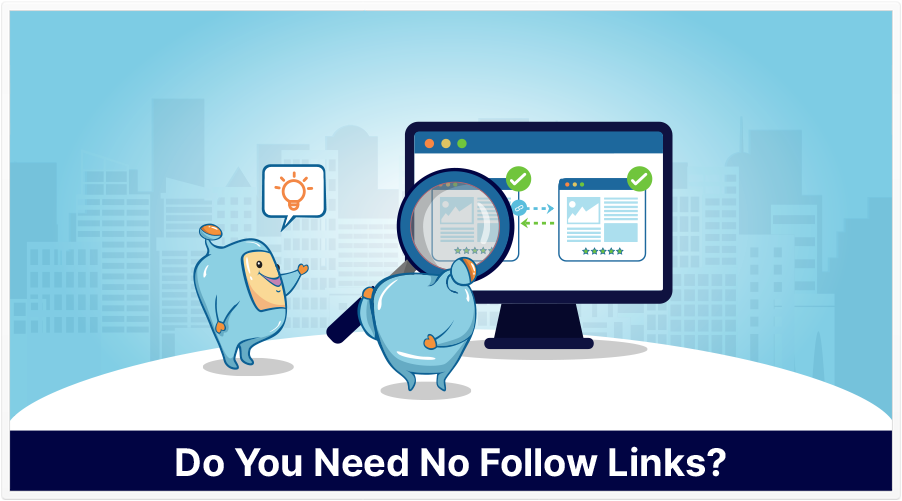
It’s important to use both NoFollow and DoFollow links. At the heart of good onpage SEO is dofollow vs nofollow link balance.
Search engine bots use links to see how websites connect to one another. Typically, the bot will skip nofollow links but travel from one site to another through crawling the dofollow links.
We dispel the myths surrounding the nofollow tags on a link in this article.
Most SEOs want ‘Follow’ links because Google says, “If a webmaster puts the ‘NoFollow’ code on the link, then no link juice will pass to the site it is linking to.”
Many internet marketers and SEOs think we need ‘Follow’ links. In this test, we look at both the NoFollow attribute and ‘Follow’ Links, how and if the ‘NoFollow’ affects your rankings.

Google looks at the quantity and quality of the sites that are linking to you. This is assigned a value and that value carries over to your website. Be it a good value or a bad value.
Obviously good value links can help your site move up in the SERPs. While bad value can lower your position.
How do you know you have the good value backlinks? How do you know that you are using nofollow and dofollow links correctly?
First, let’s understand the difference of both types of links and when you should use each one.
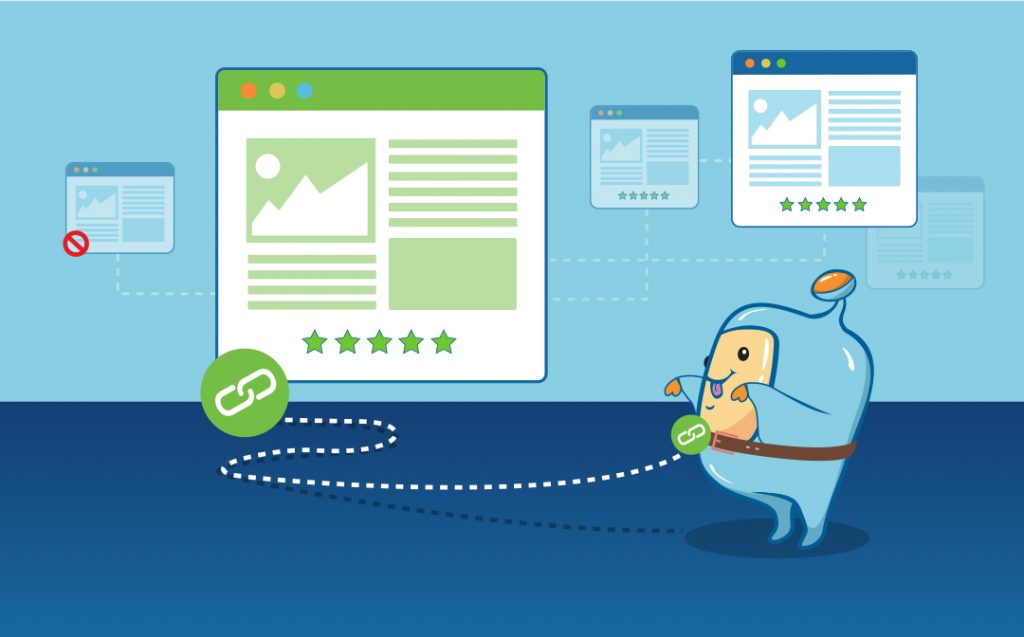
To be real, a dofollow link isn’t really real. By nature, most links will be dofollow in its natural state.
If a link is not marked with a nofollow tag, it is a dofollow link. There are some exceptions to this that you will learn in the nofollow section of this article.
When your link appears on someone else’s website and it is a dofollow link, it can impact the search engines ranking of your website.
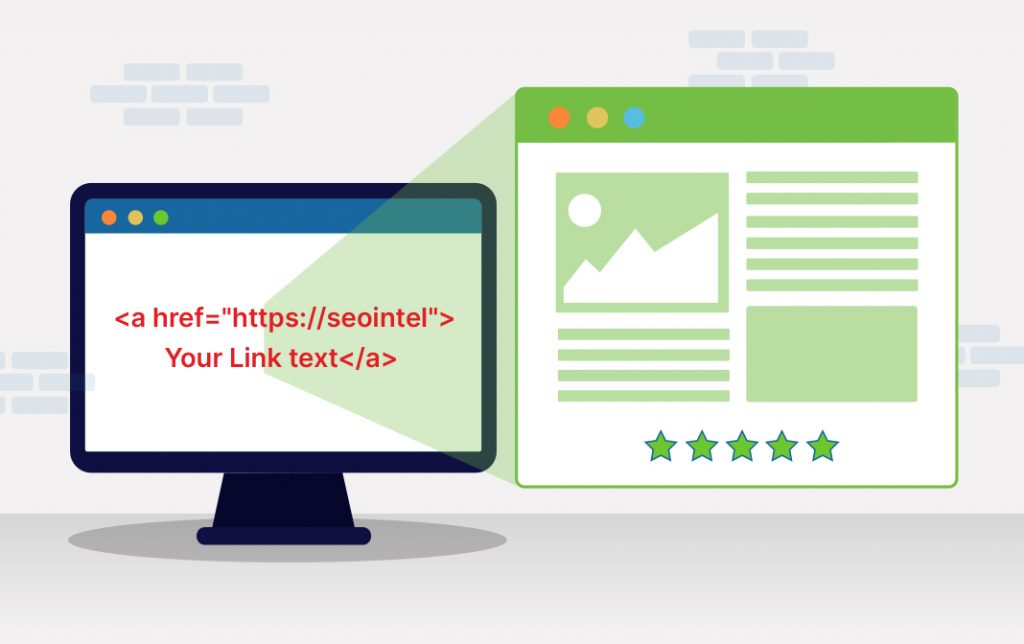
The html code for a dofollow link is this:
<a href= “https://seointel”>Your Link text</a>
You won’t need to add any special code to make a link dofollow.
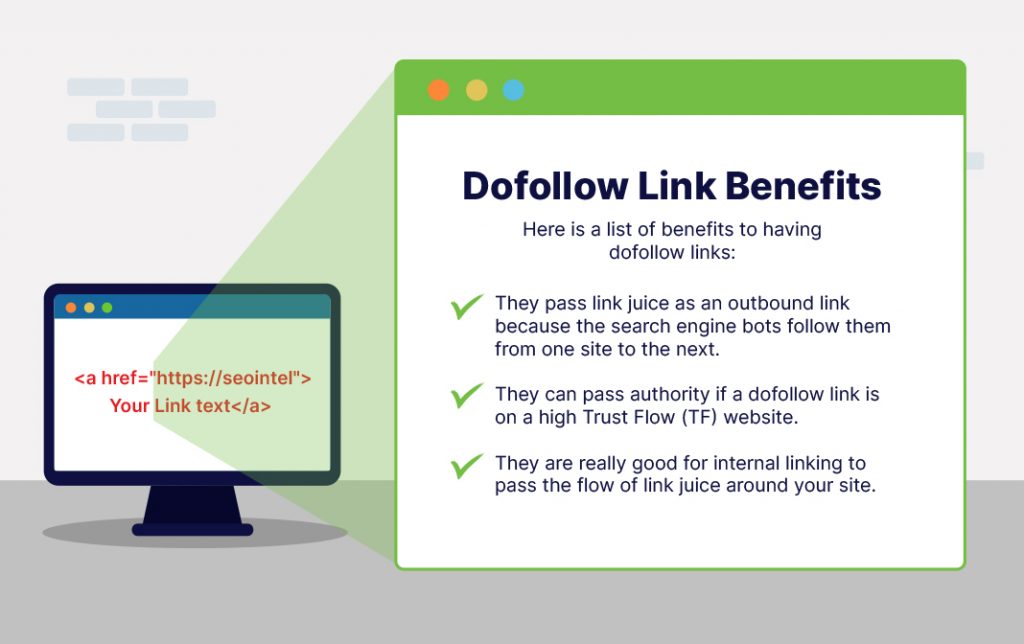
Here is a list of benefits to having dofollow links:
When a spider bot lands on a page, it crawls the page. When it hits a link and the link is dofollow, it will follow that link and continue to crawl. It notes the relationship between linking content or linking websites.
We call the site authority that one website passes on to another link juice.
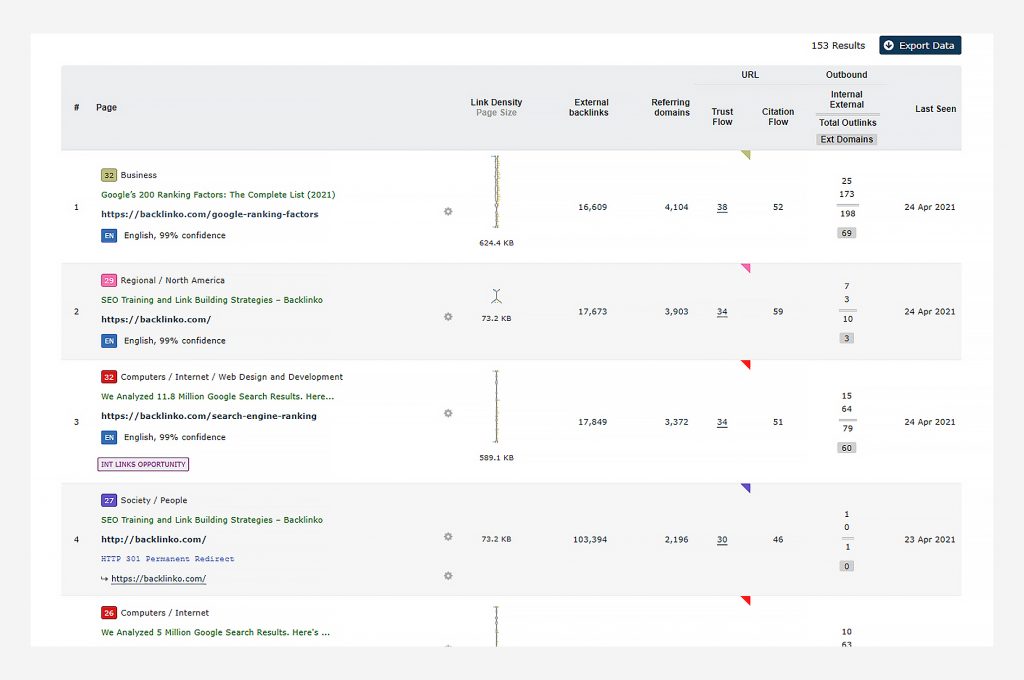
If a site had a page with the TF domain authority of 38 and that page has one or more inbound links to your article with a dofollow link, that 38 TF domain authority would flow through to your page.
The search engine will take note of these ratios. If you have several links like this, this can have a huge impact on your rankings.
This is why services like Dori’s SEONitro networks are so important. You can get high TF domain authority pages linking to your important content to increase your search engine rankings.
Let’s get into nofollow link attributes.
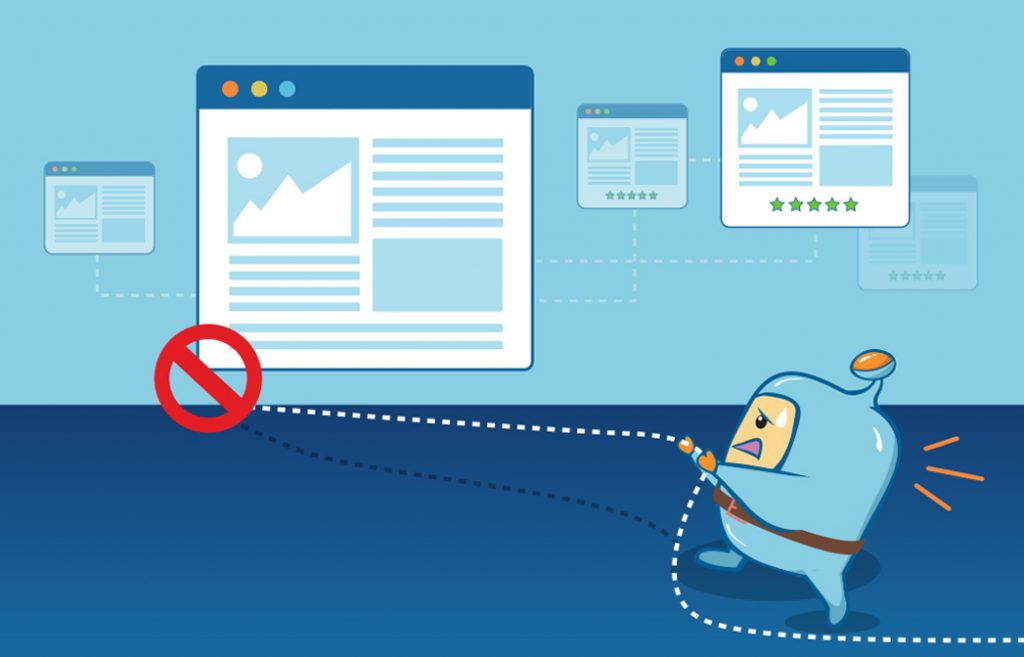
Nofollow links contain a tag in the code of a site that tells Google not to follow that link off page.
The idea is that these don’t pass link juice because the search engines are told not to follow them so they won’t be assigned a value.
The nofollow link option was introduced in 2005 to prevent people from spamming their link in blog comments. The purpose was to stop spammers from getting credit for those blog comment spam links.
WordPress automatically nofollows comment links now. The nofollowed links may have caused an unintended devaluing in the SERPs. This was a negative effect Google may not have expected.
Google has since amended their documentation to say that nofollowed links are considered a hint.
With a dofollow link, Google uses the link and matches that with the relevancy of your anchor text. Google uses that for a vote for the page. Google considers a nofollow link more of a hint rather than a hard vote.
The simple answer is yes. You can use dofollow and nofollow links in HTML. If you want to see if your competitors are using no follow links, simply view the source code on their page.
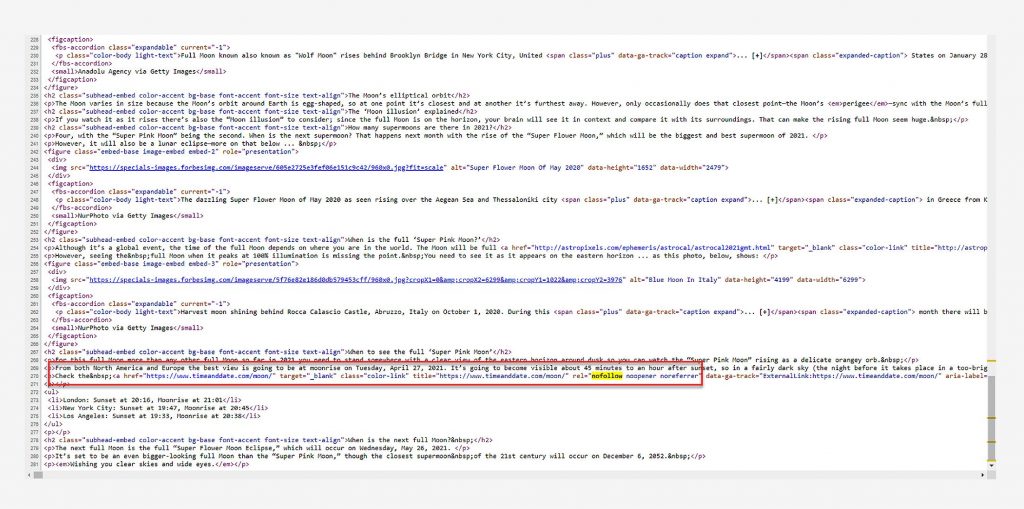
You can easily view the HTML of any page’s source code.
Here is what a dofollow link looks like:
<a href=”https://seointel.com”>This is a dofollow link</a>
The HTML code for a nofollow link looks like this:
<a href=”https://seointel.com” rel=”nofollow”>
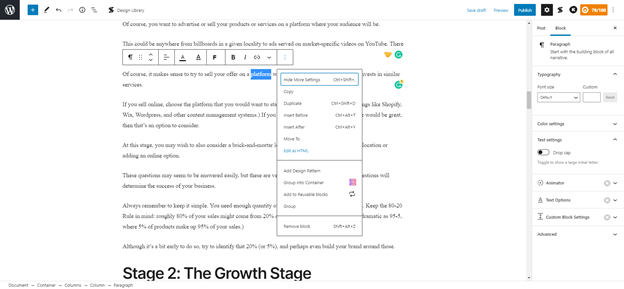
If you want to add a nofollow attribute to a link, you’ll work inside the HTML of your page.
The complete link will look like this: <a href=”https://seointel.com” rel=”nofollow”>membership</a>
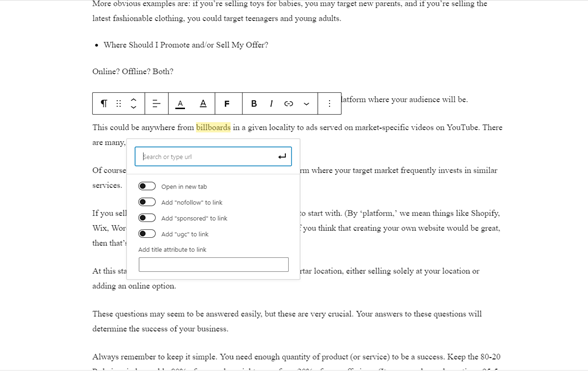
Many WordPress themes have made rel=nofollow links easy to implement:
That’s all there is to it.
You don’t even have to manually add the HTML code to get a nofollow link.
To make sure your nofollow links are set up correctly, you can use a chrome extension.
To see nofollow links on a site, add the Chrome extension: Nofollow by igoreware. Look for a blue link icon in the extension list.
When you are on a page that has nofollow links, the links will be automatically highlighted for you.
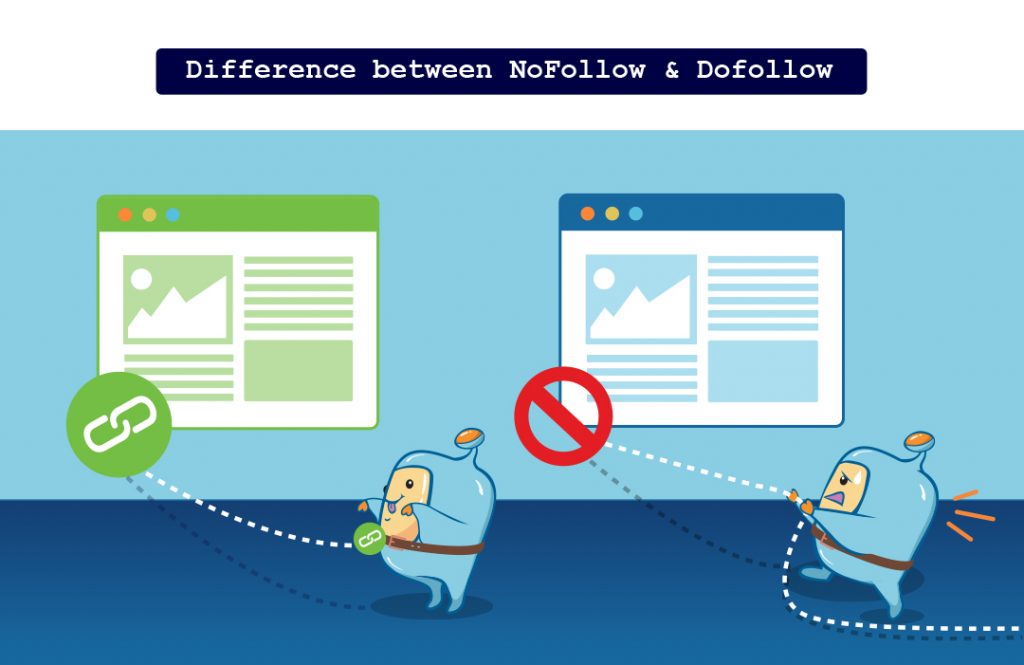
A dofollow link tells Google that you want the bot spider to follow the link to another page or site. This will then carry the link juice from your page to the other page.
Dofollow links are especially useful when link sculpting to make sure the power flows through your site the way you want it to.
You already know that a nofollow link tag occurs in the source code. It tells Google not to leave your page to go to another one when it hits that link.
On the public side, humans will be able to see the link and follow it. Nofollow link tags tell only search engines bots to disregard the link.
It’s important to know that just because you have a rel=nofollow tag on your site, this should be considered a suggestion to the spider bots. Not a hard and fast rule.
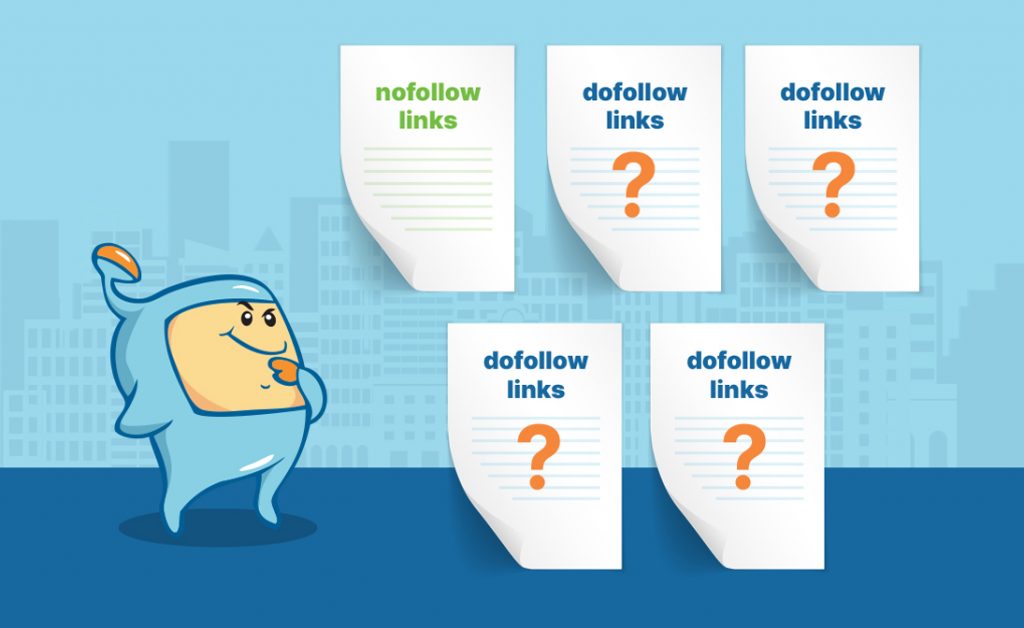
Most marketers don’t bother with a link if it comes with a nofollow. There is a theory that a dofollow link is more valuable.
Our test was a bust. But we did learn several things from it. One of the biggest things we learned was about the inner workings of Majestic back then.
We learned how Majestic was grading links and how that grade can be used to determine the quality of a link in regards to how Google’s algorithm looks at a site.
While this test was a bust, we did retest the dofollow and nofollow links, We wanted to know which one was stronger. Or if there was any difference.
When we did our hypothesis for this test before the results came in, we didn’t think it would affect the rank.
We set up five test pages with five high authority outbound links placed throughout each page.
The experiment page contains all no-follow links while the others contain regular do-follow links.
The test page that contained the no-follow links shifted up one in the rankings, while the others did not move or shifted down to accommodate the shift upwards.
When in doubt, look at your competitors. Take your top 10 competitors and look at their breakdown. You can look at a tool like Ahrefs or Majestic for this information. Natural linking profiles will be a mix of dofollow and nofollow links coming to a site.
If we look at Google Penguin Algorithm update, one of the focuses of that update was unnatural link profiles. Some people feel it is unnatural to have all dofollow links and the same anchor text.
If you’ve gotten a link from a popular site, you probably found that it was a nofollow link. We’ve heard people say, “I got a link from Forbes… but it was a nofollow link.” Even if their search engine optimization positioning didn’t change, they did see an influx of traffic.
This same thing holds true for social media links. These links can drive traffic and give your brand and site important exposure.
Neil Patel received 10,000 extra visitors in 30 days. They came from a nofollow link on Quora.
We know Google counts traffic to your website. If you can get that traffic to click around your website and spend some time, that will give you value marks.
Remember our test. Five pages all linking out to high authority websites. The one with all nofollow links beat out the pages with dofollow links.
While we don’t know the exact strength of that SEO signal, I suspect it is pretty small. The idea is they won’t hurt you and can even give you a slight benefit.
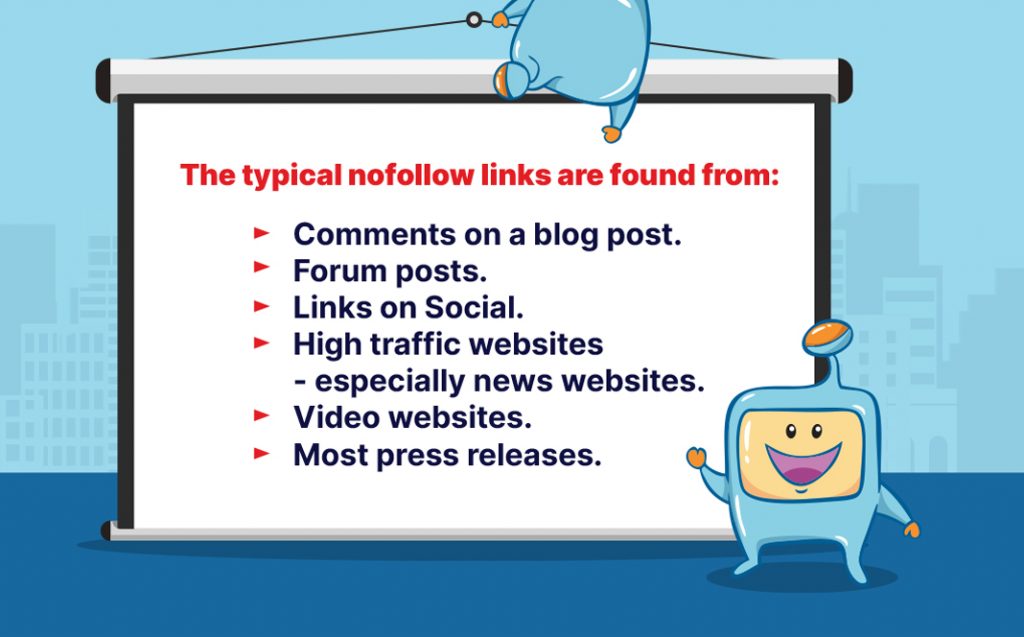
The typical nofollow links are found from:
If you want to be completely white hat, any links that are paid for should have a nofollow tag according to Google.
While you might not pay for PBN links, maybe you paid for a banner ad. Google says this link should be a nofollow.
Google is doing more to help distinguish nofollow links. In September 2019, Google added two link tag additions. This helps Google to understand the reason for nofollow links better.
The sponsored tag is what Google says for you to use for links that you will be paid for, sponsorship or advertisements that are paid for.
John Mueller mentioned that you should rel=sponsored your affiliate links. On February 4, 2020, John tweeted, “definitely use rel=sponsored for affiliate links, if you can. And to be more complete: affiliate links are not bad. It’s fine to monetize your site. Google’s OK with that.
There’s no need to hide them, just use the right kind of link if you can.”
If links are paid for, Google wants you using the rel=”sponsored” tag. The theory is this will help Google judge unnatural links better.
If Google is using this as a way to learn, you should probably pay attention to your anchor text and make sure it is relevant in relation to the content on the link destination.
The sponsored tag will look like this:
<a href=”https://seointel.com/” rel=”sponsored”>Your Link Here</a>
UGC stands for user generated content. Google wants you to use UGC links on user contributed sections of your website like: forum posts and blog comments.
If you have a trusted super contributor that regularly comments on your blog or forum, you can remove the rel=ugc and make their links dofollow.
The UGC tag looks like this:
<a href=”https://seointel.com/” rel=”ugc”>Your Link Here</a>
Like other nofollow links, these should just be considered hints to spider bots, not hard and fast rules.
Important: It’s important to note that ranking, indexing and crawling are different.
A link with a nofollow can still be ranked and indexed. It may still be crawled. Remember it’s ultimately up to the spider to honor or ignore your request.
Both types of links are important for SEO. Each one serves their purpose.
Figure out what your link strategy needs to be based on your competitors. You’ll then have a better idea of how best to use your DoFollow and NoFollow links.